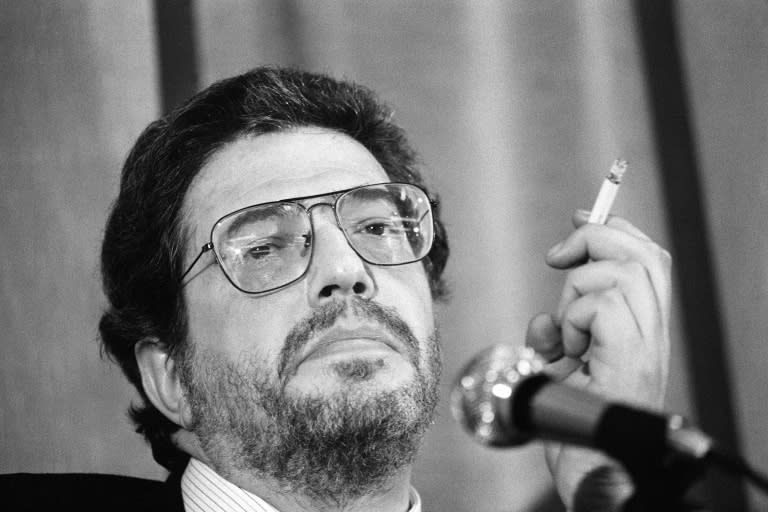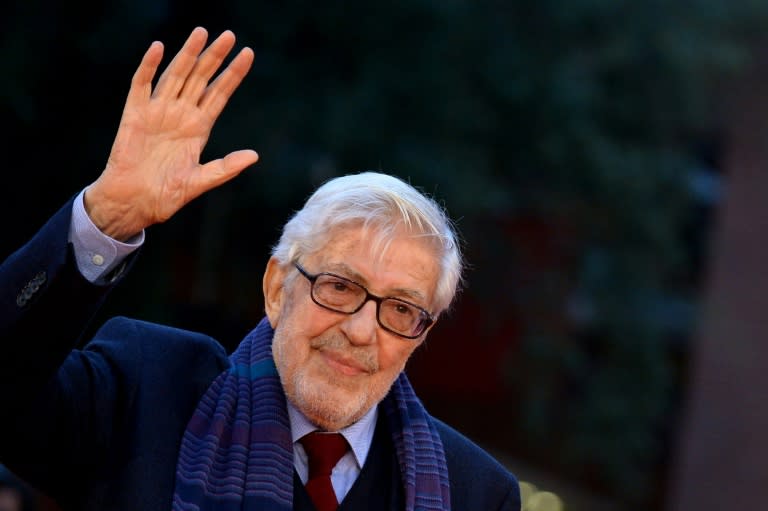Ettore Scola, grand master of Italian cinema
Ettore Scola, who has died aged 84, was one of the last great Italian film directors, a painstaking and passionate chronicler of Italian society whose unforgettable masterpieces featured global stars like Sophia Loren and Marcello Mastroianni. Scola dominated Italian cinema for more than three decades with works such as "A Special Day" (1977), an Oscar-nominated film starring Mastroianni as a persecuted radio journalist and Loren as a sentimental housewife who meet on the day Hitler visited Rome in 1938. He leaves behind a wide-ranging oeuvre portraying the dark years of Italy under fascism and its identity crisis in the early half of the 21st century. A master of Italian-style comedy like fellow directors Dino Risi or Mario Monicelli, his prolific works used a variety of stylistic methods to satirise the interaction between individuals and history. The scene in "A Special Day" where Loren and Mastroianni move between sheets drying in the sun on the terrace of the apartment block in which they are staying is seen as one of the most beautiful in Italian cinema, according to critic Francesco Castelnuovo. "It still influences young directors," he told Italian TV. Scola's politics were firmly on the left, a close associate of Enrico Berlinguer's communist party and he explored France's revolutionary history in the 1982 classic "That Night in Varennes". More than a dozen of his films were joint French-Italian productions and several French actors, including the internationally renowned Jean-Louis Trintignant, starred in his films. - 'Razor-sharp' - Scola enhanced his reputation as a cinematic master with the 1974 "We All Loved Each Other So Much", a comedy-drama about the post-war lives of three partisans fighting for the liberation of Italy and in love with the same woman. His films won several awards, with "A Special Day" picking up France's Cesar Award for best foreign film and Mastroianni winning the best actor at Cannes for the 1970 "Dramma della gelosia" ("Drama of Jealousy"). Born on May 10, 1931 in Trevico, near Naples in southern Italy, Scola grew up in Rome and at the tender age of 16, began working on the satirical paper "Marc Aurelio", first as a cartoonist then a journalist sketching vignettes of Italian life. While still in his teens, he began his career in cinema and a decade later had writing credits on films such as Dino Risi's "March on Rome" (1962). He moved into directing in 1964, working on topics dear to his heart such as friendship ("We All Loved Each Other So Much"), the bourgeoisie ("The Family") and social ambition ("The Terrace"). His beloved Rome played a central part in many of his films and even appeared to be the star in his penultimate movie, the 2003 "Gente di Roma" ("People of Roma") in which a man takes an apparently aimless bus ride through the city, encountering the seamy characters of the Eternal City. He branched briefly into the adventure film genre with the 1968 "Will Our Heroes Be Able to Find Their Friend Who Has Mysteriously Disappeared in Africa?", a more-than-two-hour piece exploring the topic of colonialism. But his films were more often set in enclosed spaces, on terraces and ballrooms. "This allows me to get as close as possible to my characters and to what they are thinking," he explained. Tributes poured in, with Italian Prime Minister Matteo Renzi leading the charge, hailing Scola as a "master" of the screen. He had an "incredible" and "razor-sharp" ability to read Italy, its society and the changes it underwent, said Renzi. Culture Minister Dario Franceschini praised him as a "grand master, an extraordinary man, still young until the last day of his life." Scola died on Tuesday in Rome's polyclinic, where he had been in a coma since Sunday after being admitted to the hospital cardiac surgery unit.



